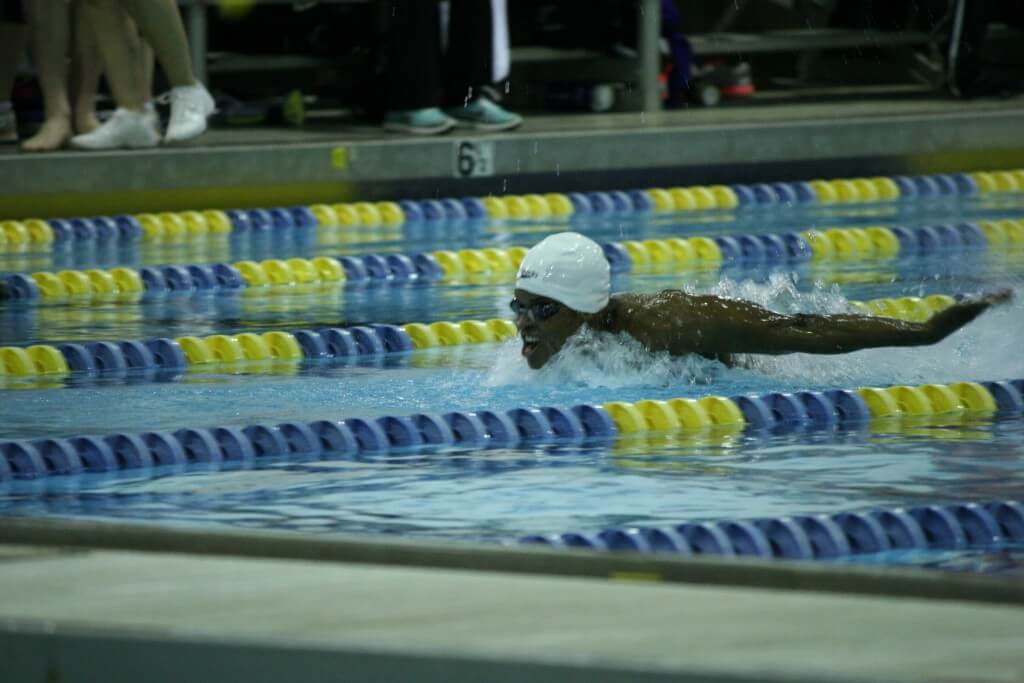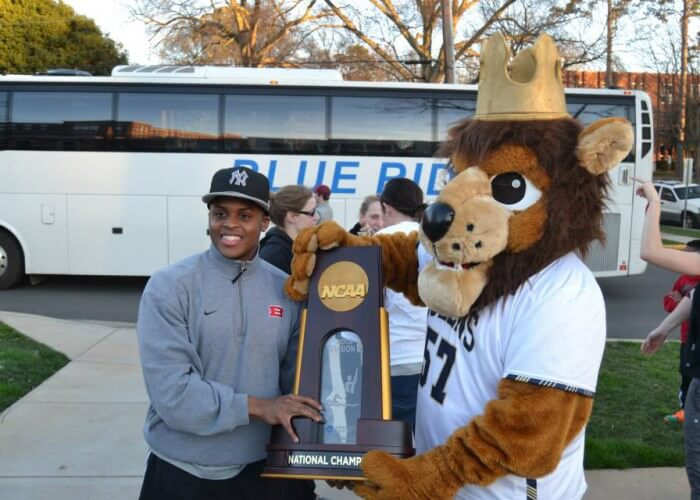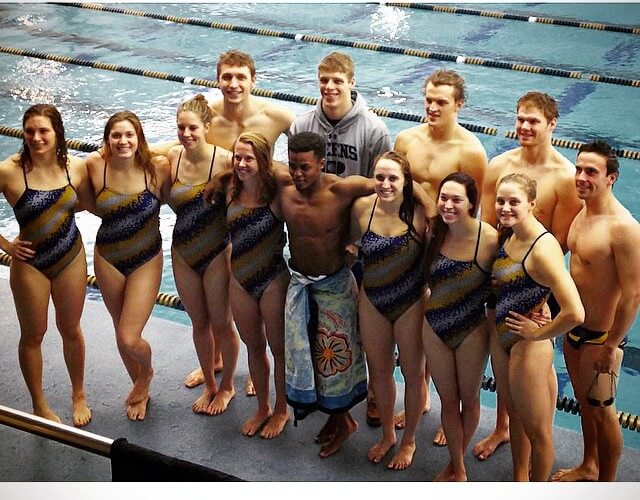The Challenges of Swimming After College

By Seren Jones, Swimming World College Intern
Whether we are aware of it or not, many of us student-athletes take the college athletics system for granted. How many of us have complained about something related to our sports attire, or the standard of the cafeteria food, a horrific workout, or the mood swings of the head coach? Evidently, we take our four years for granted because in reality, we are provided with sports attire, we are fed every day, our workouts may be horrific at times – but they’re also (hopefully) beneficial, we have a coaching staff, and many of us get paid through scholarship. When you take a step back to admire the full picture, we have a pretty good deal.
So imagine what it must be like to receive a fraction of what you were provided with while in the collegiate system. Not only would this be a struggle for American athletes, but more so for international athletes, who face the difficulties of staying in country to train, be it for the Olympic Trials or the Olympic Games.

Photo Courtesy: Peter H. Bick
Having graduated from Queens University of Charlotte (N.C.) last spring, Evante Gibson, who has decided to pursue swimming after college, now values the perks of being a student-athlete in the college athletics system.
“I appreciate swimming in college a lot more now,” said Gibson, who was an All-American and part of the university’s NCAA team throughout his college career. “Before, I had a schedule that revolved around swimming. Swimming after college is a lot trickier.”
Gibson, who attended Baylor School in Chattanooga, Tennessee, is originally from Freeport, Bahamas, and represents the Caribbean island on an international level, including his 2013 appearance at the World University Games. It is due to his success and experience as a national Bahamian swimmer that he aspires to continue his hard work in the pool. But as a non-US citizen who is no longer a student, life is not as easy as it once was as a student-athlete.

Photo Courtesy: Evante Gibson
“I have to balance other external factors [like my] job,” said the 21-year-old. “I have to be diligent with the time that I have to swim. It was a lot easier to find a motivation when swimming with the college team. Some days I am by myself and must find other sources of motivation.”
Although Gibson could have hung up his suit and goggles with the majority of his senior class, the Bahamian who is currently unattached but remains to be based in Queens, felt an obligation to stay in the water.
“I have a commitment to my country and to the Bahamas Swimming Federation,” he said. “I still would like to represent my country at an international level.”
Gibson is not the only Bahamian training in the U.S., nor is he the only one with a post-college goal in the pool.
“I am swimming at Queens University of Charlotte, mostly with other alumni or post college swimmers who are also swimming for a particular reason, i.e. Olympic Trials,” he said. “I sometimes swim by myself when there are certain conflicts.”
Gibson has been fortunate enough to partake in the OPT (Optional Practical Training) program. This enables him to work in the U.S. for 12 months. Not only does this give him the opportunity to balance work and swimming on a daily basis, but he can also finance his life as an elite athlete.
Even though Gibson is aware that pursuing swimming post-collegiately is more difficult than being part of the collegiate system, he also recognizes the fact that his post-college experience thus far has been far better than it could have been. For instance, he didn’t have to search for a training facility, as Queens University was more than willing to provide him with necessary pool time.
“I have been fortunate enough not to experience any major challenges or problems after I left the collegiate swimming system,” said Gibson, who is training for the 2016 Bahamas Trials for the Rio Olympic Games. “It takes some time getting used to not actually following a program or schedule that was specifically designed for you, [and receiving] half of your time in the pool. But you get used to it eventually.”

Photo Courtesy: Evante Gibson
For American and international swimmers alike, swimming after college certainly isn’t easy. Balancing work and training while facing obstacles such as indefinite training programs, and finding facilities and pool time may easily discourage those who continue to chase the dream after their four years in the collegiate system. However, as Gibson knows, it is not impossible.
“The biggest advice I would give is to have patience. Things are not always going to go your way. However, it is imperative that you remember the goals you established at the beginning of the season, and the reasons why you continued to swim after college.”



